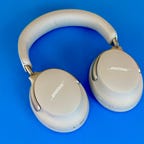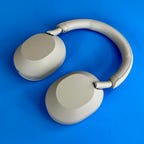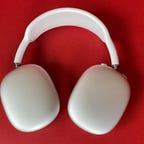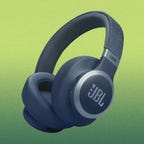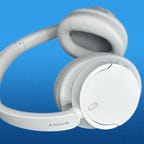Best Over-Ear Headphones for 2024
We've tested the best over-ear headphones on the market, from brands like Apple, Bose, Sony and more. Get the best over-ear headphones for you and your ears.
What to consider
Budget
Noise canceling?
Wired or wireless
Comfort
Durability
Return policy
Our Picks
Which are the best over-ear headphones right now?
After the 20 or so years I've been testing headphones, I'd be lying if I told you there was one over-ear or "around-the-ear" headphone that was better than all the rest -- and there are certainly a lot of great models out there right now. That said, a few models do stand out from the rest of the pack, though, including the Bose QuietComfort Ultra Headphones, the Sony WH-1000XM5 and Apple's Airpods Max (for iPhone users). For sound quality in a wireless over-ear headphone, the Focal Bathys are hard to beat, but they cost $699.
Most of the over-ear headphones on this list are wireless Bluetooth headphones that feature active noise canceling (some but not all wireless headphones also come with a cable for wired listening). But I've also included a handful of wired-only over-ear headphones for the audio purists out there looking for great sound.
When testing and evaluating over-ear headphones, we consider factors such as build quality, comfort, and sound quality, as well as noise-canceling and voice-calling performance. This list is regularly updated as more over-ear headphones hit the market, with the most recent addition being the the JBL Live 770NC.
Read more: Best Headphones for 2024
Best over-ear headphones for 2024
While Bose's new flagship QuietComfort Ultra Headphones may not be a huge upgrade over the company's Noise Cancelling 700 headphones, they feature a more premium design along with Bose's new Immersive Audio feature, which delivers some sound-quality enhancements. Along with excellent sound and great noise canceling, the QC Ultra Headphones are also superb for making calls, with top-notch background noise reduction. All that adds up to the best new noise-canceling headphones of 2024 and a worthy adversary to Sony's highly rated WH-1000XM5 and Apple's AirPods Max.
Best noise-canceling headphones
Sony WH-1000XM5
When you have a product that a lot of people love, change can be risky. Such is the case for Sony's WH-1000XM5, the fifth generation of the 1000X series headphones, which were first released in 2016 as the MDR-1000X Wireless and have become increasingly popular as they've improved with each generation. Over the years, Sony has made some tweaks to the design, but nothing as dramatic as what it's done with the WH-1000XM5. Other than the higher price tag, most of those changes are good, and Sony's made some dramatic improvements with voice-calling performance as well as even better noise canceling and more refined sound.
Best high-end wireless headphones for Apple users
Apple AirPods Max
Yes, they're expensive, but the AirPods Max deliver richer, more detailed sound than lower-priced competitors from Bose and Sony. They also feature arguably the best noise canceling on the market along with premium build quality and Apple's virtual surround spatial audio feature for video watching. While they're heavy, they manage to be surprisingly comfortable, though I did have to adjust the mesh canopy headband to sit a little more forward on my head to get a comfortable secure fit when I was out walking with them. They should fit most heads well, but there will be exceptions.
New mid-range JBL noise-canceling headphones
JBL Live 770NC
The well-designed and comfortable JBL Live 770NC offers some modest improvements over its predecessor, including better battery life (up to 65 hours with ANC off and 50 hours with ANC on) and Bluetooth 5.3 with LE Audio (via a future firmware upgrade). Equipped with 40mm drivers, you get bold, nicely defined sound with powerful bass that's relatively tight. JBL's Ambient Aware and TalkThru features are on board along with multipoint Bluetooth pairing (the one feature that's missing is ear-detection sensors that pause your music when you take the headphones off). I thought the headphones' noise muffling capabilities were good and callers said they could hear me well even in noisier environments except when the wind picked up around me. The headphones fold up and a simple carrying pouch (no hard case) is included along with a cable for wired listening.
Best midrange noise-canceling headphones
Sony CH-720N
Sony's improved entry-level noise canceling headphones, the CH-720Ns, have a bit of a plasticky budget vibe, but they're lightweight and very comfortable. Part of me was expecting them to sound pretty mediocre, but I was pleasantly surprised. No, they don't sound as good as the WH-1000XM5s. But they sound more premium than they look (and feel), and their overall performance is a step up from their predecessor, the CH-710Ns. Are they worth $128? Maybe -- or maybe not. But the good news is that, like the CH-710N and WH-XB910 before them, these should see significant discounts in the not-so-distant future, which is what you may want to wait for.
Good sound for under $70
Edifier W820NB Plus
Edifier makes some good-sounding PC speakers and true-wireless earbuds, and it's done a nice job with its W820NB noise-canceling headphones, now on their second-gen version, the Edifier W820NB Plus. The first thing you'll notice about them when you put them on is that they're comfortable -- Edifier has upgraded the ear pads with higher-grade memory foam -- and the headphones fit snugly on your head. They also sound good for their price, offering slightly improved audio quality from the originals, thanks to what appear to be upgraded drivers. You get a bit more clarity and slightly better bass definition. Their sound didn't necessarily blow me away -- they lack a bit of openness -- but it's very good for what the headphones cost. Like their predecessor, they're pleasant-sounding headphones -- and even a bit more so now.
Other features include an ambient mode that lets outside sound in and a low-latency gaming mode. The noise canceling has been upgraded slightly and they're decent for voice calling. Battery life is pretty impressive with up to 49 hours on a single charge at moderate volume levels (and noise canceling off). Also, they now support the LDAC audio codec for Android devices.
A couple of things are still missing. There's no carrying case or headphone jack, though you can connect them to your computer with the included USB-C to USB-A cable. But the 820NB Plus headphones are still a good value.
Best Beats over-ear headphones
Beats Studio Pro
Love 'em or hate 'em, Beats Studio headphones are among the most popular headphones of all time, launching as wired headphones back in 2008. This is the fourth generation of them, and they carry the same list price as their predecessor and look very similar on the outside but have some big changes on the inside that make them significantly better headphones. I'm tempted to describe them as more affordable plastic versions of the AirPods Max. However, that's not quite accurate due to a choice in chipsets and one notable missing feature. But read our full Beats Studio Pro review to find out what makes these very good headphones, albeit with some caveats.
Best Sennheiser noise-canceling headphones
Sennheiser Momentum 4 Wireless
Sennheiser's previous-generation Momentum Wireless headphones have always had a pretty distinct look that was part retro, part modern and stood out for the exposed metal on their headband. For better or worse, that's all gone now, and the new Momentum 4 Wireless, Sennheiser's flagship noise-canceling headphones, look a bit more subdued and also a bit more like some of their competitors.
The Momentum 4 Wireless offers superior performance over the Momentum 3 Wireless in every regard, though the biggest gains are with noise canceling and voice-calling performance as well as battery life, which is outstanding -- up to 60 hours at moderate volume levels. There's also a transparency mode that allows ambient sound in, and they have the ability to create a custom sound profile in the Smart Control app for iOS and Android using the built-in EQ, sound modes and a new Sound Personalization feature that "assesses the user's listening preferences and adjusts the listening experience according to their taste."
Equipped with 42mm drivers, Sennheiser says the Momentum 4 Wireless offer "best-in-class" sound, which is debatable. I'd say the Momentum 4's sound quality is right there with other models in this price range -- they sound excellent, with the requisite well-defined, punchy bass, relatively wide soundstage (they sound pretty open) and smooth treble that brings out some of the finer details in well-recorded tracks. They're a pleasure to listen to.
Slightly upgraded Bose noise-canceling headphones
Bose QuietComfort Headphones
When Bose released its new flagship QuietComfort Ultra Headphones, it also replaced the QuietComfort 45s with a new, slightly updated model simply called the QuietComfort Headphones. Like the QC 45s, this model carries on the very comfortable tried-and-true legacy QuietComfort design that's been around for a few generations that a lot of people continue to love. The QC Ultra Headphones add Bose's new Immersive Audio feature and have a more refined design with some metal parts (they also have Bluetooth 5.3 instead of Bluetooth 5.1). But the QuietComfort Headphones still feature very good sound (the Ultras offer a small step up in sound quality), excellent noise canceling and strong voice-calling performance.
As for differences between these and the QC45s, Bose says it adjusted some of the electronics to improve battery life (now 24 hours vs. 22 hours) and adjusted the logos to make the products "visually distinguishable and more in line with its latest design language." It also added an inline microphone to the auxiliary cable to "help with some users who may prefer a plug-and-play solution rather than Bluetooth pairing." There's also a Wind Block feature and some additional small performance improvements due to software upgrades. Finally, the headphones come in new color options, including green and a light blue version that's only available at bose.com.
While the QuietComfort Headphones carry a $350 list price that's $50 higher than that of the QC 45s, we expect them to be regularly discounted to around $250 or possibly less than that in 2024 -- so look to buy them when they're on sale. You can read our review of the QuietComfort 45 to get a good take on the QuietComfort Headphones.
Good value noise-canceling headphones
1More SonoFlow
The design of 1More's SonoFlow headphones reminds me a little of some earlier Sony headphones and also the newer Sennheiser Momentum Wireless 4. They're a bit generic looking but sleek enough and more importantly, comfortable to wear. They also feature very respectable sound quality. While they don't quite measure up to the sound quality of what'll get with more premium models like the Momentum Wireless 4, they're not that far off. The SonoFlow deliver smooth sound with good clarity and relatively well-defined bass (they're just not quite as rich or dynamic sounding as those premium models I mentioned). They also have support for the LDAC audio codec.
The noise canceling is a step down from what Sony and Bose models offer but it does a decent job of muffling ambient sound and there is a transparency mode. Voice-calling performance is similarly solid but unspectacular. Note that you can use them in wired mode with the included cable, but the noise canceling only works in wireless mode, which is an issue for frequent flyers who like some noise canceling when plugging into an in-flight entertainment system.
Top value noise-canceling headphones from Anker
Anker Soundcore Space One
Available in three color options, the Soundcore Space One are Anker's latest noise-canceling headphones. They're a good value for around $100, offering a strong feature set along with good sound quality and performance. They can't quite compete sound-wise with many of the premium noise-canceling models, but you don't feel like you're giving up that much on the sound front to save a good deal of money. They lack a bit of that natural, refined quality you look for in a great set of cans, but the Space One sound respectable, with decent clarity and bass definition and measure up well to the more expensive Soundcore Space 45.
Noise-canceling and voice-calling performance are also good for headphones in this price range, though the transparency mode is only OK. Anker has developed a version of Sony's Speak-to-Chat feature -- Anker calls it Easy Chat -- that automatically pauses your music and enters a transparency mode when you walk up to someone and start a conversation. The headphones are equipped with wear-detection sensors, a feature not usually found at this price, and include a carrying pouch. LDAC audio codec support is available for Android users.
I found them comfortable to wear, but they do look a bit bulky compared to more premium models.
Evolved B&W noise-canceling headphones
Bowers & Wilkins PX7 S2e
Available in gray, blue or black, Bowers & Wilkins PX7 S2 headphones offer some significant improvements over the first-gen version. Not only are these headphones more comfortable -- they tip the scales at 307 grams -- but they sound better and have better noise-canceling and voice-calling performance with improved noise reduction. I don't necessarily think they're a better option than the lighter and even more comfortable Sony WH-1000XM5. But the PX7 S2 certainly looks and feels luxurious, with its sturdy design, and delivers very good sound with better voice-calling performance, thanks to an upgraded microphone setup.
Bowers & Wilkins has also released a step-up model, the PX8, that feature even better sound but cost significantly more.
Best wired studio headphones
Beyerdynamic DT 700 Pro X
We were fans of Beyerdynamic's earlier DT 770 Pro headphones. The new DT 700 X is easier to drive than the 770 Pro, thanks to the company's new Stellar.45 sound transducer with an impedance of 48 ohms, so it plays better with smartphones, tablets and laptops without requiring a headphone amp.
These headphones are targeted at content creators who want accurate audio reproduction, but it's a bit more dynamic sounding and less bass shy than many studio headphones, which tend to restrain the bass and hew toward a very neutral sound profile. The DT 700 X are revealing, clean-sounding headphones that offer invitingly open sound (particularly for closed-back headphones) and makes you realize what you're missing after listening to similarly priced Bluetooth headphones.
Unlike the earlier DT 770 Pro, which are being sold at a nice discount (around $160), the DT 700 X come with two interchangeable (detachable) straight cables in different lengths, and the DT 700 X arguably have a little cleaner look than their predecessor.
Solidly built -- they weigh 350 grams -- they're quite comfortable, featuring upgraded soft, velour-covered memory foam earpads that offer decent passive noise isolation. The earpads and the headphones' other parts are replaceable, Beyerdynamic says.
Beyerdynamic also sells the open-back DT 900 X for $30 less. That model should provide slightly more open, airy sound, but the big drawback is people around you can hear whatever you're listening to -- and sound also leaks in. This closed-back version is more versatile.
Best-sounding wireless noise-canceling headphones
Focal Bathys
French audio company Focal is known for its high-end speakers and headphones. You might call it the Bowers & Wilkins of France. And now it's finally done what a lot of high-end audio companies have had to do in this age of on-the-go wireless music listening: make active noise-canceling Bluetooth headphones.
Over three years in development, the Bathys cost $699 and feature not only wireless connectivity but a built-in digital-to-analog converter for USB wired listening with any computer, smartphone or tablet with USB-C. They are easily one of the best-sounding pairs of wireless headphones.
They Focal Bathys share the same design aesthetic as the company's more expensive wired headphones.
Best Shure noise-canceling headphones
Shure Aonic 50 Gen 2
A lot of us liked Shure's original Aonic 50 headphones, but they had pretty middling noise cancellation. Well, the second-gen version addresses that issue -- the noise canceling is much improved -- and Shure has more than doubled the the battery life to around 45 hours and added a quick-charge feature. It also shrunk the headphone's carry case a bit, though it's still not that compact. Those upgrades make the Aonic 50 Gen 2 one of the best new noise-canceling headphones of 2024.
While the Aonic 50 Gen 2s are pretty heavy at 334 grams, they're built sturdily and are also comfortable to wear, with nicely padded ear cups. They have excellent sound quality with very good clarity and well-defined bass. Shure calls them "studio headphones" so the sound profile is fairly neutral, but you can add more bass in the EQ settings in Shure's companion app for iOS and Android (engaging the Spatializer setting in the app expands the soundstage slightly but doesn't make a big difference).
Equipped with three microphones in each ear cup, the headphones' call quality is good with decent noise reduction, and there's an adjustable sidetone feature that allows you to hear your voice. However, I wouldn't say they're exceptionally good for calls in noisier environments.
The headphones do have some extra features worth noting. They offer both LDAC and aptX support for Android and other devices that support those audio codecs. You can connect the headphones to a computer or smartphone with a USB-C cable for hi-res audio transmission or use the included analog cable if your device has a 3.5mm headphone port. That said, I found they played a little louder using a wireless Bluetooth connection (with LDAC) than when I connected them to a Samsung Galaxy Flip 5 via USB-C.
Top open-back audiophile wired headphones
Sennheiser 660S2
While the Sennheiser 660S2 may seem expensive, they're one of the more affordable pairs of true audiophile headphones, sharing the same design as their predecessor, the 660S. The changes are all on the inside, with improved airflow and upgraded drivers that include a new ultralight aluminum voice coil. This leads to better sound, with the bass adding more depth and definition, while the treble gains a bit more clarity and sizzle (the very natural-sounding mids remain pretty much unchanged as far as I can tell). The soundstage also seems more spacious and airy -- yes, these are open-back headphones so they do leak sound.
Note that the 660S2 require some extra power to drive (they're now 300-ohm headphones), so you'll want to pair them with a dedicated headphone amplifier. I did manage to use them with an iPhone, by plugging them into an AudioQuest Dragonfly USB DAC/Amp (there's also a version for Android smartphones). They sounded great listening to high-resolution tracks from Qobuz, the music streaming service.
Audiophile headphones usually have a very neutral sound profile, but the 660S2 don't suffer from being overly so. They mix in just enough excitement while also managing to sound really clean and smooth. They're also comfortable, though some people with larger heads have complained that they feel a bit too tight on their heads. (I have a more medium-size head and they felt good over long listening sessions.)
Best-sounding premium noise-canceling headphones
Master & Dynamic MW75
The MW75 are Master & Dynamic's best full-size headphones yet. Needless to say, they're pricey at $599; most people will be quite satisfied with the $400 Sony WH-1000XM5s, which are lighter and more comfortable, and which deliver best-in-class voice calling and noise canceling. But the MW75's build quality is hard to beat and they offer top-notch sound for a wireless model (I thought they sounded better than Apple's AirPods Max headphones), plus strong voice-calling and noise-canceling performance. With their support for aptX Adaptive, they have additional appeal for Android users, who can get a touch better sound quality with the right setup. But I was also quite happy streaming music with my iPhone 13 Pro using the AAC codec.
Sturdy wireless headphones with upgraded performance
Master & Dynamic MH40 (2nd Generation)
All of Master & Dynamic's headphones are well built (they're sturdy) and have a unique retro-modern look. The higher-end MW75 has active noise canceling and sounds a little better than the freshly updated MH40, which features new drivers and a new chipset that delivers improved sound and performance. But the MH40 sounds more refined than its predecessor, with better clarity and definition, and now offers support for the AAC and AptX audio codecs, plus improved voice-calling performance. Additionally, you can plug its USB-C cable into a computer or Android smartphone for a wired digital connection for high-resolution audio. Battery life is rated at a healthy 30 hours.
To be clear, this isn't a noise-canceling headphone, but you do get decent passive noise isolation from the nicely padded ear cups, which adhere magnetically and are easy to swap out should they eventually show some wear. Available in several color options, the MH40s are comfortable to wear -- they weigh 280 grams -- but may not be a good fit for those with smaller heads.
Best older over-ear headphones
Sony MDR7506
Introduced way back in 1991, the Sony MDR-7506 have long been favorite headphones of recording engineers and other sound professionals (yes, these are wired headphones). The origins of its design date even further back, since the MDR-7506 headphones are, in fact, a refresh of the Sony MDR-V6 that rolled out in 1985. Both models were designed for the pro sound market but remain hugely popular with consumers.
While the two models have the same design and are very comfortable, they don't sound identical. Both offer very well-balanced sound and excellent clarity for their modest prices -- and both are great overall values. But the MDR-V6 headphones make a little more bass and sound more laid-back and mellow, while the 7506 headphones are leaner with a more accentuated treble range, which makes the sound a little crisper and livelier.
Other over-ear headphones we tested
Mark Levinson No. 5909: These are premium audio brand Mark Levinson's first headphones and, yes, they're really expensive at $999. But they're also really good. They have a sturdy design without managing to feel hefty on your head (read: they're substantial but not too heavy) and they're comfortable to wear over long periods, thanks to their nicely padded and replaceable leather-covered earcups and headband. Read our Mark Levinson No. 5909 hands-on.
Bang & Olufsen's Beoplay HX: Bang & Olufsen's Beoplay HX headphones are the successor to the company's H9 series headphones (the X is the Roman numeral for 10) and, like those earlier H9 models, the HX headphones carry a list price of $445 (some colors are discounted at Amazon). That price makes it a direct competitor of Apple's AirPods Max, which are heavier at 385 grams versus the HX's 285 grams. I don't know if the HX headphones are more comfortable than the AirPods Max, but I found the two models pretty equal in the comfort department over longer listening sessions, and these do feature the usual swanky B&O lambskin-covered memory foam earpads. Their sound measures up well to the AirPods Max's sound -- overall, it's well-balanced, with deep, well-defined bass, natural-sounding mids (where vocals live) and inviting detail in the treble.
V-Moda M-200: V-Moda's M-200 is one of the few wired headphones on this list. Released in late 2019, these clean- and detailed-sounding over-ear headphones have excellent bass response, and the cushy earcups mean they're also comfortable to wear. Featuring 50mm drivers with neodymium magnets, CCAW voice coils and fine-tuning by Roland engineers -- yes, V-Moda is now owned by Roland -- the M‑200 is Hi‑Res Audio-certified by the Japan Audio Society. Other V-Moda headphones tend to push the bass a little, but this set has the more neutral profile that you'd expect from studio monitor headphones. They come with two cords, one of which has a built-in microphone for making calls. It would be nice if V-Moda offered Lightning or USB-C cables for phones without headphone jacks. Note that last year V-Moda released the M-200 ANC ($350), a wireless version of these headphones that includes active noise canceling. They also sound great, but their noise cancellation, call quality and overall feature set don't match those of the AirPods Max.
OneOdio A10: The OneOdio A10s deliver more than you'd expect for their relatively modest price. They're built better than you think they would be for around $90 and are pretty comfortable to wear. They have a dual-hinge design and feel sturdy, weighing in at 395 grams. They sound surprisingly decent and have reasonably good noise canceling with a transparency mode (which has a slight audible hiss, however). The headphones also have very good battery life. No, they're not as comfortable as Bose's and Sony's models (they do feel a tad heavy) and their sound lacks that extra bit of clarity, bass definition and depth that more premium headphones tend to deliver. But they did exceed my expectations and come with a decent carrying case, even if the OneOdio logo splayed across it is a bit garish.
Technics EAH-A800: There's a bit of an old-school vibe to the Technics EAH-A800 -- and it's not just the Technics brand, which Panasonic resurrected in the last few years. Their design is something of a throwback, but these headphones are comfortable and both fold up and fold flat. They feature a big, energetic sound with powerful bass and good detail, although they take a day or two to break in.
Factors to consider when buying over-ear headphones
Budget
Before anything else, you'll want to figure out how much you're willing to spend on new over-ear headphones. The quality of value-priced headphones continues to improve, so you can find good affordable headphones for less than $100. But the premium models, which offer better build quality and performance, tend to cost $200 or more -- sometimes much more.
Noise canceling: Yes or no
The majority of over-ear headphones feature active noise canceling. But it does slightly affect sound quality, so if you're an audio purist, you may want to go with a model that doesn't have noise canceling. You can also sometimes save some money by getting non-ANC headphones, though noise canceling is becoming a fairly standard feature.
Wired or wireless
Most headphones these days are Bluetooth wireless headphones. But you still tend to get the best sound going the wired route. Many wireless headphones also come with a headphone cable for wired listening (and some offer USB-C Audio using a USB-C cable). But we have a few headphones on this list that are wired-only.
Fit, aka comfort
It's key that the headphones you buy fit your head well. They should offer a comfortable fit that's snug yet not too snug. Ideally, you want headphones you can wear over the course of a day with minimal breaks.
Durability
You want headphones that hold up well over time, so look for models that we note have sturdy build quality.
Maximize performance and features for your budget
You want the best-sounding headphones with the best noise canceling, call quality and features for whatever you're able to spend.
Return policy
It's critical to buy your headphones at a retailer that has a good return policy, in case you have buyer's remorse. Some people who are having trouble deciding between two models sometimes buy both, try them out for a few days and then return one.
How we test over-ear headphones
We test over-ear headphones based on six key criteria: design, sound quality, noise-canceling performance, voice-calling performance, features and value.
- Design: We assess not only how comfortably the headphones fit (their ergonomics) but also their build quality and how well the controls are implemented. With over-ear headphones, we'll note if they're water-resistant, but only a few over-ear headphones have water- and dust-resistance ratings.
- Sound quality: We evaluate sound quality by listening to a set playlist of music tracks and comparing headphones to top competing products in their price range. Sonic traits such as bass definition, clarity, dynamic range and how natural the headphones sound are key factors in our assessment.
- Noise-canceling performance: If the headphones we're testing feature active noise canceling, we evaluate ANC performance by wearing the headphones in the same spot indoors near a noisy HVAC unit to see how well they do at muffling lower frequencies. Then we head out onto city streets to test the headphones in a real-world environment where we see how they do muffling not only street noise but also people's voices.
- Extra features: Some great-sounding headphones aren't loaded with features, but we do take into account what extra features are on board. These include everything from quick-access awareness to transparency modes (your music pauses and the headphones open up to the outside world so you can have a conversation) to special sound modes to ear-detection sensors that automatically pause your music when you take the headphones off your ears. We also take a look at the companion app for the headphones if there is one and how user-friendly it is.
- Voice-calling: When we test voice-calling performance, we make calls on noisy city streets and evaluate how well the headphones or earbuds reduce background noise and how clearly callers can hear our voice.
- Value: We determine value after considering the strength of the headphones against all these criteria and what they're able to deliver compared with other models in their price class.


